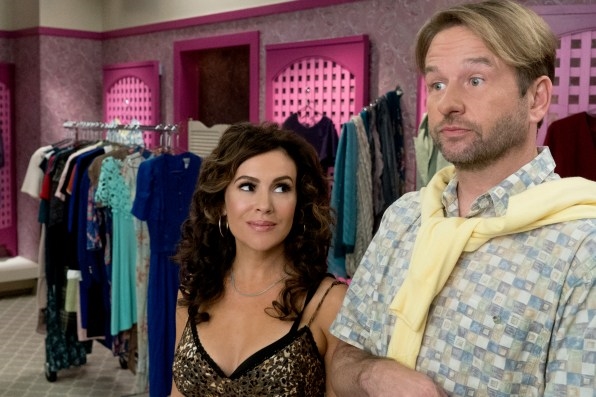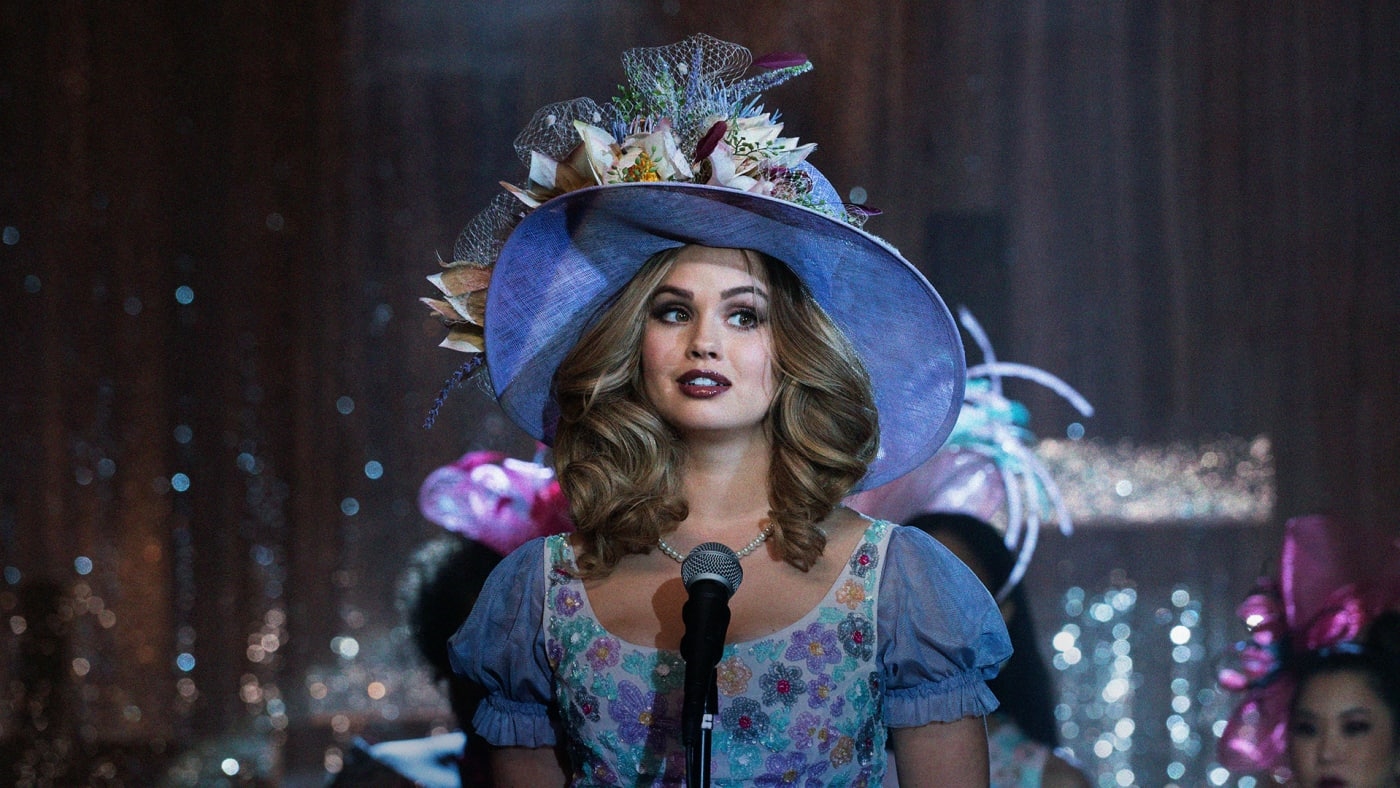Netflix’s “Insatiable” isn’t a fat-shaming show: It’s much worse
There’s a rapacious public appetite for dark comedy about body issues, but the controversial Netflix series Insatiable does not go down easy.
The show follows one Fatty Patty (telegenic former Disney actress Debby Ryan, sporting a Jiminy Glick-style fat suit) after a face-punch leaves her with a wired-shut jaw. Soon enough, the plus-size high school student emerges from her recovery, as though from a cocoon, some 70 pounds lighter. She’s now sexy enough to give boys cartoon-wolf eyes–and hell-bent on revenge.
When a trailer for the show dropped last month, it triggered an instant Twitter backlash and a Change.org petition, which garnered over 220,000 signatures. Signees claimed the show is fat-shaming and should be cancelled. The creators urged them to wait until they actually saw the show. Critics, bound by an embargo at the time, could not and did not respond.
Now, I can reveal that Insatiable is not a fat-shaming show: It’s much worse than that.
Originally, I found myself siding with Netflix’s “innocent until proven guilty” plea. In an emotional note, show creator Lauren Gussis disclosed that she was bullied for being overweight as a teen, and that the show is her way of safely exorcizing her feelings about that time in her life. The premise of a suddenly svelte young woman making life hell for her haters didn’t sound inherently fat-shaming to me. About 17 years ago, I, too, went through the experience of losing a life-changing amount of weight in a short time, and I, too, wanted a sort of revenge afterward. Considering the outsize pressure society puts on women to be thin, I was curious to see how Gussis’s idea of revenge stacked up against mine.
But after bingeing four episodes that made me wish I could purge them from memory, it seems like the show’s conception of “revenge” is restricted mostly to “becoming a beauty queen.” Even if Patty wanted something other than to prove the extent of her hotness in a competitive setting, the show offers an irresponsible, dangerous depiction of her too-easy physical transformation, the seamless results of it, and their miraculous sustainability.
The world of Insatiable diverges with reality from the start. It takes place in an alternate universe where everybody is openly contemptuous of the obese all the time. Lawyers, teachers, students–pretty much everybody refers to Patty strictly as “fat girl” or “fatty.” It doesn’t seem to be a commentary on the anti-PC reaction to so-called language policing; everybody just agrees it’s open season on the overweight and the more shit-talking the better. Who cares how quietly crushing it is when some well-meaning person carefully avoids mentioning your size in delegating you as the one in the group to ride shotgun; in the world of Insatiable, sometimes the school marching band follows Patty around with a tuba. In fact, the inciting incident for the series occurs when a homeless man calls her fat and ends up punching her in the face. Later, the same homeless man offers a now-skinny Patty a cigarette and, not recognizing her, adds, “It keeps the pounds off–and nobody likes a fatty.” JUST A PERFECTLY NORMAL THING A PERSON WOULD RANDOMLY VOLUNTEER.

If this world seems hostile to fat people in a heightened way, fret not: Losing weight is as simple as going on an all-liquid diet for three months. It takes Patty merely that long to lose the 70 pounds that have kept her from being a conventionally attractive high school heartbreaker lo these many years. Three months! That’s 22.3 pounds per month, with all of the pounds coming from exactly where she’d want them to, as if cut by a topiary artist, and with nary a stretch mark left behind.
Every obese person has a fantasy of how they would look slimmed down, and this show posits that sucking all your meals through a straw for the duration of a Game of Thrones season might lead you to that fantasy. If Fatty Patty had drunk an enchanted Slim Fast to lose the weight, it would’ve been preferable, and equally believable. This show doesn’t need gritty realism–its creators defend it as satire–but Insatiable needs to care more about the messages it’s sending.
The part not enough people mention about the fantasy of instant weight loss is that your reward for it is having to work like hell forever in order to maintain it. Once Patty is allowed to eat non-liquid food again, though, the weight magically stays evaporated, for reasons we never quite find out in at least the first four episodes. Every time Patty is about to eat a donut or something similarly junky, she flashes back to a Fatty Patty horror moment and gets shell-shocked. Is she eating at other times? How much? We know from voiceover narration in the first episode that she can’t remember a time when she wasn’t hungry. Is she just not hungry anymore? Because I promise you, even having lost more than 100 pounds from my peak weight, I have never gotten any less hungry. I’ve just gotten better at dealing with it. How Patty deals with her hunger remains unclear, besides her channeling it into a desire to become a beauty queen and wreck a much-older man’s marriage.

Enter Patty’s lawyer, Bob Armstrong (played by Dallas Roberts). Bob is coded as a closeted, married gay man by his side hustle coaching beauty pageants, his fussy affect, obsession with a handsome district attorney’s muscular physique, and ownership of a self-described “wardrobe that could rival Andy Cohen’s.” He is also a formerly overweight high school boy who now describes his hunger to coach a beauty pageant winner as “insatiable.” (Parallels!) Bob meets Patty by having to defend her in court against the homeless man who punched her. (She did punch him first.) Bob is ready to settle the case, until he meets Patty and realizes that she’s actually not in fact the disgusting fat pig he was led to believe. “Pretty girls don’t have to settle,” he tells Patty. COOL COOL COOL COOL COOL.
Obviously, the intended message of this show is not “Pretty girls don’t have to settle.” I hope not, anyway. But Bob Armstrong is the second lead in this show, we’re ostensibly supposed to be on his side, and yet he says and believes things like this. When he says them to Patty, she proceeds to fall in romantic love with him, for reasons that make no sense beyond the fact that he wants to train her in the ways of a beauty queen and nobody has ever been nice to her before.
There’s one thing Patty doesn’t know about Bob, though, and buckle up for this: Bob is recently disgraced because the mother of one of his beauty pageant protégées has falsely accused him of touching her daughter’s “hoohoo,” which is something she decided to do just on a whim.
In the show’s defense, Insatiable was written in a pre-#MeToo world, where a woman haphazardly hurling a false accusation like this could innocently be a wacky plot point. (I guess?) But now, especially when Bob Armstong’s wife is played by Alyssa Milano? Absolutely not. Nothing could diminish my respect for Milano’s bravery and compassion as a #MeToo champion last fall, but I have to wonder how she and everyone else involved felt about putting out a show where a woman so carelessly fakes a predatory accusation–a witch hunt, if you will–and in a “comedic” way. Something Woody Allen could point to and say, “See, it happens!” It’s not as though, with a little editing and possibly some reshoots, another event wouldn’t have sufficed to explain why Bob Armstrong is an underdog. Considering the current climate, anything would have been better.
Now, surely this “hoohoo” business is the only instance of women trapping men into seeming predatory in the first episode, right? Whoops, an underage beauty queen named Magnolia (Erinn Westbrook) also invites Bob Armstrong up to her bedroom innocuously, and then proceeds to strip in front of him. (They’re soon interrupted, but not before a detective takes a photo for blackmail purposes.) Bob Armstrong is like Bruce Willis’s John McClane, except instead of hostage situations, wherever Bob goes either underage women are throwing themselves at him or their mothers are accusing him of molestation.
Believe it or not, there’s a lot more to dislike, too. The clumsy stabs at racial and LGBTQ humor. The multiple narrators. The tired jokes (a Thighmaster sight gag in 2018!). Every now and then, there are hints of the actual growing pains that go along with a shrinking body (“I feel like a raw nerve,” Patty says at one point), but the impact of these rare moments is diluted beyond potability by . . . everything else.
As I mentioned at the top, there’s a hunger to see issues like body dysmorphia creatively represented onscreen. For example, Amy Schumer’s I Feel Pretty, which certainly had its own issues, was a minor hit earlier this year. I have sympathy for the creators of Insatiable; it’s difficult to mine comedy from such (there’s no other word) heavy subject matter. The final product, however, is about as successful as a fad diet and just as dangerous as the worst of them.
Unlike the overweight people in this show, and in the real world it barely resembles, Insatiable deserves all the shame it’s about to incur.
Fast Company , Read Full Story
(19)



